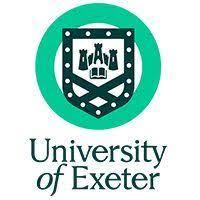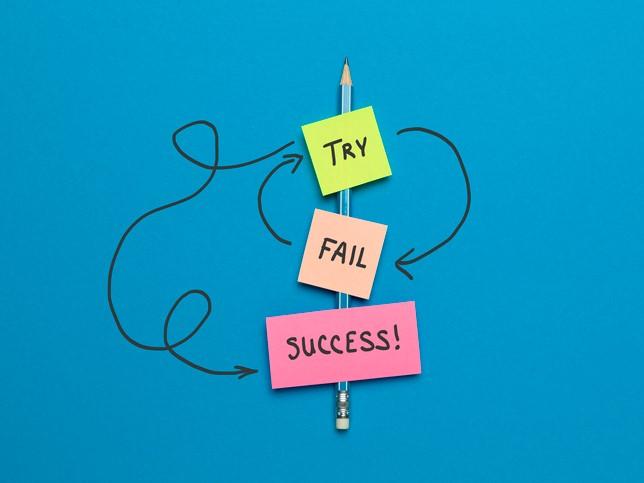
The F-word: how to use failure as a learning tool
You may also like
Student mental health and academic outcomes are affected by our collective view of failure, or fear of failure. Anxieties around failure impact attitudes to academic performance, outcomes and motivation among undergraduate and postgraduate students alike.
From my experience as a skills adviser, some students find it difficult to even talk about anything they perceive as a significant setback. We also know that certain groups of students, who face external or environmental pressures (such as caring responsibilities or financial issues), lack resilience, which can affect how they deal with problematic issues or setbacks. These groups are particularly at risk of dropping out of higher education.
Using failure as a learning tool can benefit the whole student community and encourages self-reflection and a growth mentality that is beneficial to all forms of learning. From my experience, digging into and addressing the issues related to failure at university can be a beneficial, empowering process.
- Using productive failure to activate deeper learning
- Building resilience in students: give them roots and wings
- Failure as a career development tool
Holistic reflection
Students should be encouraged to reflect on their academic progress. It can be difficult, since there is a tendency for students to look forward to completing their course rather than reflecting on the progress made. Also, there are many elements connected to academic work so it can be difficult to know where to start.
I encourage my students to break their work down into specific tasks – research, planning, writing, editing. Students should be asked to focus on study habits or mindsets that they feel lead to success. For example, some students are great at on-the-spot discussion of academic material while others are better at deeper, more self-contained reflection on complex ideas. Importantly, students must not just focus on the academic outcomes but the processes by which they are reached. What students can offer is evidenced by so much more than the final result. Higher education and the workplace require a range of skills.
Start with strengths
Students should identify where they personally were successful and work out possible reasons. It is important to focus on the positives first, since negativity can become overwhelming and make it difficult to move on. Where the student has done well, guide them to ask questions.
Why did they set aside enough time to prepare for an assignment or exam? Is it because they are well organised? Why did they research a particular topic in depth so that they had a complex understanding of the subject? There might be social factors involved where the student finds it easier to study with friends or maybe they are better suited to certain types of assignment such as presentations. Some students excel at discussion. Have they got a clear writing style or a defined argument? Asking questions will help students to shift their viewpoint. This can help students to appreciate their strengths, which should improve self-esteem and motivation.
Work out what went wrong
Once the student is confident of their strengths, they are ready to consider and analyse the areas in which they failed. Solutions to tackling such issues are likely to be much more complex than simply working harder.
- Students need to be specific and identify the particular skill or area of knowledge they need to address in order to move on. They should use their results and feedback to guide them to where possible issues lie.
- A feedback log, in which a student keeps a record of feedback from assignments, can help to identify common problems that recur between modules and courses. This shows up patterns and helps to clarify issues that students should discuss with tutors or lecturers.
- Encourage students to focus on a couple of the most important issues. Some students who are perfectionists or those who have low self esteem will find far too many areas to work on which can be overwhelming and almost impossible to address.
For instance, for exams, students could ask themselves whether they allowed themselves sufficient time and preparation for an assignment or exam. There might be feedback from their lecturers suggesting their answers lacked detail. They need to read feedback carefully and work out the specific areas where they can improve, such as drawing on more sources and evidence. There are so many things that might have gone wrong, it is worth taking time to reflect and specify the issues. A feedback log can help to keep a record, to clarify the situation and track progress.
Plan to improve
Once students have identified their strengths and weaknesses, then they can get to work planning for future assignments. Guide students to use a diary or calendar to manage their time. An Outlook or Google calendar is ideal because it is portable and linked to emails. Students need to jot down the term’s assignments and exams. They can then prioritise and allocate sufficient time to prepare for and complete each assignment or exam with additional time set aside for refreshing or developing the necessary skills such as research or critical writing. Finally, they should make sure that they have time away from studying.
Academic skills departments can also help here. Students should be encouraged to discuss their concerns with a skills adviser who can direct them to relevant resources and help with a range of academic skills such as essay writing, criticality or note-taking. Many institutions have a wide variety of resources freely available online. Students might want, and need, to discuss possible approaches to certain assignments with their lecturer or personal tutor to get more targeted feedback and advice. If exams were an issue in the first term, then they may need to put in time for extra revision or exam practice ahead of the next set of exams. Once known, a plan can be formed to deal with any stumbling blocks and clearly timetabled so that when students reach their next assignment or set of exams, they feel confident they have gone some way to addressing these challenges.
Learning to fail is a difficult skill to master. Higher education is generally focused on achieving successful outcomes and students can see the education journey as a single trajectory, but it is much more complex. Reframing failure as a learning tool can help students work to overcome areas of difficulty, to improve resilience and build confidence. Students need to be encouraged to reflect on their progress so far and identify the strengths and weaknesses in their learning. It is a new mindset for most students but, once mastered, it is so empowering.
Claire Davey-Potts is an academic skills adviser at the University of Exeter.
If you found this interesting and want advice and insight from academics and university staff delivered direct to your inbox each week, sign up for the Campus newsletter.




